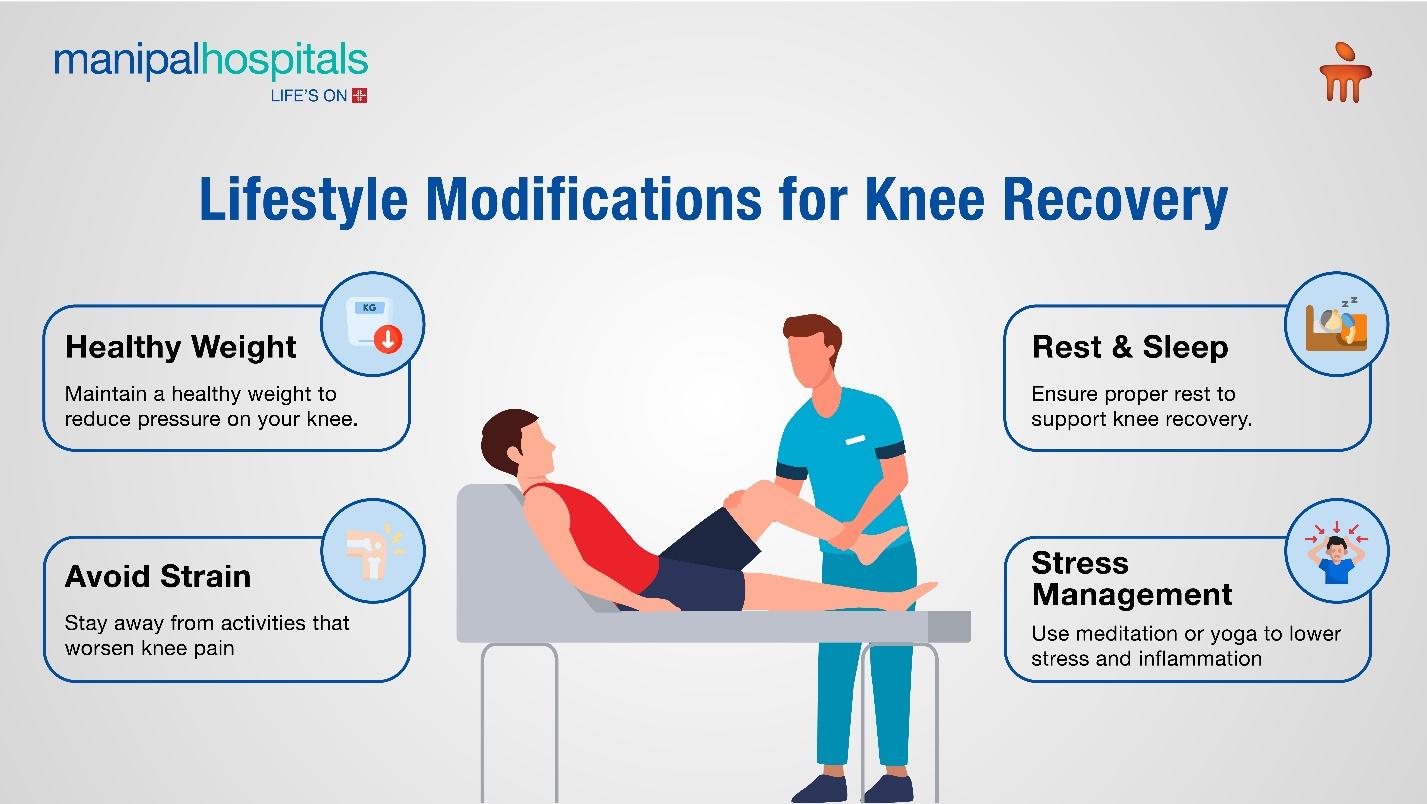
Knee health is essential for maintaining an active and comfortable lifestyle. Whether you're recovering from knee surgery or managing chronic knee pain, incorporating daily routines for knee recovery and health can significantly improve your quality of life. In this article, we'll explore various strategies and exercises that can help you maintain healthy knees and promote recovery.
Synopsis
Understanding Knee Health and Recovery
The knee joint is a complex structure that bears the weight of your body and facilitates movement. It's prone to wear and tear, especially if you've undergone knee surgery or suffer from conditions like osteoarthritis. To maintain a healthy knee joint, you need to focus on strength, flexibility, and proper alignment.
Morning Stretching Routine for Knee Flexibility
Starting your day with a gentle stretching routine can help with knee pain management, improve flexibility, and reduce stiffness. Here are some simple knee recovery exercises you can do in the morning:
-
Knee Bends: Slowly bend and straighten your knee while sitting or lying down.
-
Straight Leg Raises: Lie on your back and lift your leg straight up, holding for a few seconds before lowering it back down.
-
Wall Squats: Stand with your back against a wall and slowly slide down into a squatting position, holding for a few seconds before standing back up.
Aim to hold each stretch for 15-30 seconds and repeat for 2-3 sets. Remember to listen to your body and avoid any movements that cause pain or discomfort.
Strengthening Exercises for Knee Stability
In addition to stretching, it's crucial to engage in exercises that target the muscles surrounding your knee joint. Strengthening these muscles can help improve knee stability and reduce the risk of injury. Consider incorporating low-impact exercises, such as cycling and swimming into your routine.
| Interesting Fact: Did you know that incorporating low-impact exercises such as swimming or cycling can significantly reduce your knee joint strain while improving mobility? These activities are gentle on the joints yet effectively promote muscle strength around the knees. |
Proper Posture and Body Mechanics
Maintaining proper posture and body mechanics throughout the day can significantly reduce the stress on your knee joint. Here are some knee health tips to keep in mind:
-
Keep your knees in line with your toes when standing or walking.
-
Avoid excessive bending or twisting motions that can put unnecessary pressure on your knees.
-
Use proper lifting techniques, bending at the knees rather than the waist, to avoid straining your knee joint.
-
Take regular breaks to rest and stretch, especially if you engage in activities that involve prolonged standing or walking.
Nutrition and Supplements for Knee Health
A balanced diet rich in essential nutrients can contribute to knee health and recovery. Focus on consuming foods high in omega-3 fatty acids, vitamin D, and calcium, such as fatty fish, leafy greens, and dairy products. Antioxidant-rich foods like berries and colourful vegetables can also help reduce inflammation in the knee joint.
Some people may find relief from knee pain and improved joint health by taking supplements like glucosamine and chondroitin. However, it's essential to consult with your doctor before starting any new supplement regimen.
Lifestyle Modifications for Knee Recovery
In addition to exercise and nutrition, making lifestyle modifications can expedite knee surgery recovery time and overall health. Consider the following:
-
Maintain a healthy weight to reduce pressure on your knee joint.
-
Avoid activities that exacerbate knee pain or discomfort.
-
Get adequate sleep and rest to allow your knee joint to recover.
-
Manage stress through techniques like meditation and yoga to reduce inflammation and promote relaxation.
Incorporating routines for knee health and recovery can significantly improve your quality of life and help you maintain an active lifestyle. By combining knee health tips such as exercise, diet, and lifestyle you can promote knee recovery and prevent future injuries. Remember to consult with a specialist if you experience persistent knee pain or have concerns about your knee health. With the right approach and dedication, you can keep your knees healthy and strong for years to come.
FAQ's
Knee surgery recovery time varies depending on the type of surgery and individual factors. Generally, it can take between a few weeks to several months. Your doctor will provide specific guidance based on your situation and progress.
Effective routines for knee pain management include using ice packs to reduce swelling, performing gentle stretches to maintain flexibility, and taking over-the-counter medication as advised by your doctor. Elevating and resting your leg also helps in reducing discomfort.
Yes, during knee recovery, avoid high-impact activities like running or jumping that put excessive strain on your knees. Instead, focus on low-impact exercises such as swimming or cycling which support healing without stressing the joint too much.
Wearing shoes with good arch support and cushioning can promote better alignment of the legs and reduce stress on the knees. Avoid high heels or worn-out shoes; instead look for well-fitted athletic shoes suitable for walking or exercising.
Regular check-ups allow doctors to monitor your progress, adjust treatment plans if necessary, and address any emerging issues early. Consistent follow-up ensures personalised care tailored to maintaining optimal joint function over time.



















 5 Min Read
5 Min Read



















